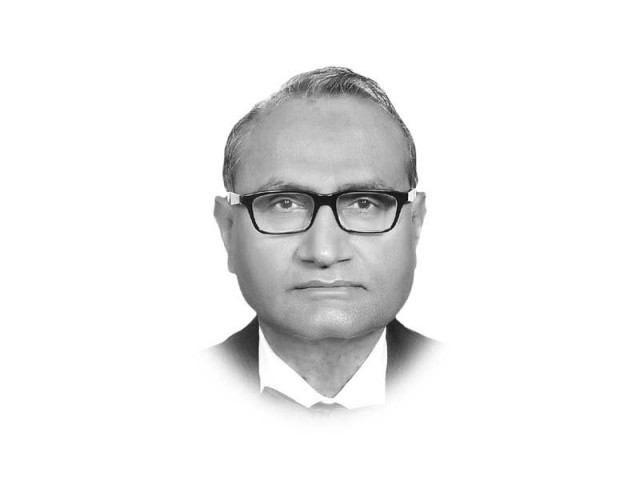Performance counts
It is clear from the trends that the incumbent provincial governments have returned to power

The writer is a senior economist and author. He can be contacted at pervez.tahir@tribune.com.pk
The PML-N government in Punjab enjoyed the reputation of being the most pro-development, known for its speed, effective delivery and dynamic leadership. It built power projects, public transport systems, roads, other civic infrastructure and farm-to-market roads. As many of the projects were mega-sized, they got media coverage in equal proportion. While the public was directly facilitated, the publicity of the hardware of development overshadowed the large number of initiatives in human development. The UNDP National Report on Human Development placed Punjab ahead of other provinces. The initiatives included Khidmat Card for differently-abled people, enrolment of two million Benazir Income Support Programme beneficiaries, children in schools with a stipend, monthly stipend for half a million girls, grant of scholarships to 350,000 students by Punjab Education Foundation, enrolment of 750,000 out-of-school children, conditional grants to brick kiln children to attend school, creation of the Social Protection Authority, combating digital divide by distributing 425,000 laptops on merit, extensive use of IT to ensure effective delivery in health and education, establishment of 200 new colleges and 14 new universities, revamping of 15 tehsil and 25 district hospitals, addition of 7,000 hospital beds, provision of skills training to two million youth, Rs45 billion in loans to two million families for self-employment and interest-free loans to about half a million poorest of the poor.
Perceived as thoroughly corrupt and badly governed by all and sundry, Sindh under the PPP must have done something right for its return to power. Hidden from the media were a number of initiatives that affected the ordinary voter directly. Its shift from providing milled flour to grain from the government stores reflected what the poor prefer. People’s Primary Healthcare Initiative revitalised Basic Health Units and Rural Health Centres. Together with free, quality secondary and tertiary healthcare, the province achieved the highest health expenditure per capita among the provinces. It is also the only province to have a reproductive health policy. Residential security to the marginalised by regularising katchi abadis in urban areas and five-marla schemes in rural areas was another effective measure. The women-focused Peoples Poverty Reduction Programme and doling out of government jobs also earned votes. The lining of Rohri and Jamrao canals and numerous distributaries, besides modernisation and rehabilitation of Guddu and Sukkur barrages benefited a large populace. This is also the only province to announce a labour policy. The province pioneered the collection of GST on services, now the largest source of revenue in all provinces.
In Khyber-Pakhtunkwa, the emphasis of the PTI government was on improving governance and the social sector. School education and police reform, besides the health card, connected directly with the voter. Merit, outcome-based spending, women-driven environmental initiatives and devolution of power at local and village level extended the participation of the people, besides empowerment through legislation on right to information, public service and human rights.
Under the Constitution, the action in these areas lies at the provincial level. It is not, therefore, surprising that the voters have rewarded the incumbent provincial governments by renewing their mandates.
Published in The Express Tribune, July 27th, 2018.
Like Opinion & Editorial on Facebook, follow @ETOpEd on Twitter to receive all updates on all our daily pieces.














COMMENTS
Comments are moderated and generally will be posted if they are on-topic and not abusive.
For more information, please see our Comments FAQ